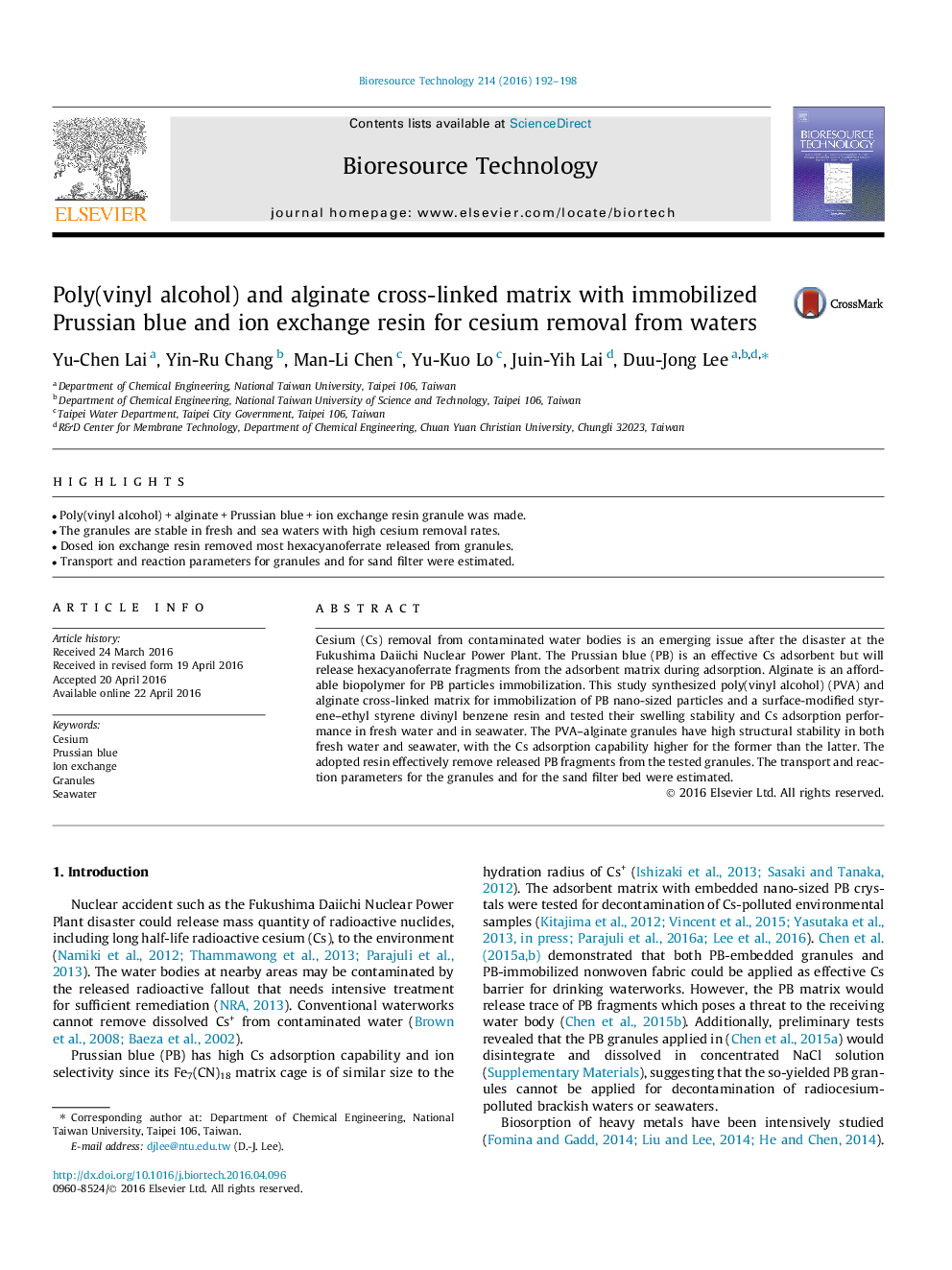| Article ID | Journal | Published Year | Pages | File Type |
|---|---|---|---|---|
| 679046 | Bioresource Technology | 2016 | 7 Pages |
•Poly(vinyl alcohol) + alginate + Prussian blue + ion exchange resin granule was made.•The granules are stable in fresh and sea waters with high cesium removal rates.•Dosed ion exchange resin removed most hexacyanoferrate released from granules.•Transport and reaction parameters for granules and for sand filter were estimated.
Cesium (Cs) removal from contaminated water bodies is an emerging issue after the disaster at the Fukushima Daiichi Nuclear Power Plant. The Prussian blue (PB) is an effective Cs adsorbent but will release hexacyanoferrate fragments from the adsorbent matrix during adsorption. Alginate is an affordable biopolymer for PB particles immobilization. This study synthesized poly(vinyl alcohol) (PVA) and alginate cross-linked matrix for immobilization of PB nano-sized particles and a surface-modified styrene–ethyl styrene divinyl benzene resin and tested their swelling stability and Cs adsorption performance in fresh water and in seawater. The PVA–alginate granules have high structural stability in both fresh water and seawater, with the Cs adsorption capability higher for the former than the latter. The adopted resin effectively remove released PB fragments from the tested granules. The transport and reaction parameters for the granules and for the sand filter bed were estimated.
